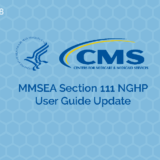Tips for Getting Your Client the Best Settlement

As an attorney, you may need to know how to negotiate a settlement for a client with a medical lien. Those with personal injury claims after accidents often seek legal representation to negotiate with insurance companies for compensation to cover medical costs associated with the accident.
If you’re lucky, the lien negotiation process may involve little more than presenting a demand letter and supporting documents to the insurance company and making a few calls to an insurance adjuster. However, getting the best settlement for your client is more likely to involve lengthy negotiations with the adjuster. With the tips below, we can help you negotiate the best possible settlement for your clients with medical liens.
Tips for Getting the Best Settlement When Negotiating Medical Liens
Follow the tips below to develop a settlement negotiation strategy and get your client the best possible settlement.
1. Develop a Litigation Strategy
Though it can be tempting to view each personal injury case like any other case with a familiar pattern, you should develop a unique litigation strategy for each claim rather than relying on a universal approach. At the beginning of litigation and throughout the process, speak with your client about their objectives.
Some clients want the case to end as quickly and inexpensively as possible, while others may want to pursue the best possible settlement as long as it takes. A client’s objectives could change during the litigation process, which is why it is essential to maintain candid communications throughout.
2. Identify an Acceptable Settlement Amount Range
When you compile your demand letter, you should determine what you expect for a settlement amount for your client’s claim. You can estimate the value of a claim based on the total medical expenses incurred due to the injury and income lost due to the injury. Your client’s pain and suffering may also factor in.
Determine the minimum amount you will accept for a settlement before you discuss your demand with an adjuster. Though you won’t reveal this amount to the adjuster, it’s helpful to keep this number in mind during negotiations to ensure you stay on track.
Keep in mind that you can be flexible, of course. If the adjuster identifies facts that weaken your claim, you may want to lower the minimum figure you will accept. On the other hand, if an adjust begins with an offer near your minimum, consider increasing your acceptable minimum amount.
3. Collect the Most Important Information
Each side should have all the information needed to agree to a reasonable settlement. You can ensure settlement negotiations are successful by identifying and collecting the information that will make the greatest difference for your client. If the other side wants discoverable information, produce these details before settlement negotiations. This approach is often in your client’s best interest, as withholding important information may not actually be favorable to your side.

4. Sit on the First Offer
When it comes to successfully negotiating personal injury settlements, the first offer is just the start. An insurance adjuster’s first offer may be incredibly low to determine how to proceed. Even if the first offer is more reasonable and not simply a negotiating tactic, it may still be too low to accept. The purpose of negotiating is to see whether you can get more compensation for your client.
5. Make a Counteroffer
If you find the offer reasonable, make a counteroffer that falls just below the amount in your demand letter. This will demonstrate to the insurance adjuster that you are reasonable and willing to compromise with them. With some bargaining, you may be able to quickly come to a settlement amount that you both consider fair and reasonable.
6. Determine the Best Context for Discussing a Settlement
Settlement negotiations can occur in several different contexts. For example, if you have a good rapport with another lawyer, then direct negotiations may be effective, especially when money is the primary or sole topic of negotiation. If there are several variables affecting the settlement or your client wants more control in the negotiations, this may not be the best option.
If your clients or the other party desires a day in court, a settlement conference may be the best context for discussing a settlement. Keep in mind that judges are available only for a limited amount of time, and some judges don’t have mediation expertise or want to conduct settlement discussions. The occurrence of the settlement conference and whether a settlement was agreed upon will also be information available to the public.
Private mediation is another option and may be ideal if you want to keep the negotiations confidential. You and the other parties involved can agree on a mediator and select a convenient location and time to meet for negotiations. Unlike a judge, your mediator will be available as long as it takes to reach a settlement.
7. Confirm the Settlement Terms in Writing
Once you finally agree to a settlement with the insurance adjuster, confirm the settlement’s terms by putting them in writing. You will detail the terms of the settlement in a letter for the adjuster. You can keep the letter brief and include the settlement amount, the damages or injuries covered by the settlement and the specific date you expect to get the settlement documents from the insurer.
Why You Should Work With Lien Resolution Professionals
Lien resolution professionals like those at Medivest investigate subrogation claims for clients to ensure validity and identify the legitimate charges. There are several advantages to working with lien resolution professionals. Some of the benefits of utilizing our medical lien resolution services at Medivest include:
- Expertise: At Medivest, our team of lien resolution professionals has specialized experience and knowledge to leverage while working to resolve claims.
- Reductions: We have the negotiation skills and extensive knowledge needed to request available reductions.
- Efficiency: We centralize tasks to ensure operations and reporting are streamlined and more efficient.
- Lower potential liability: If you work with lien resolution professionals, you are less likely to deal with claims from insurance companies for repayment.
- Improved client experience: Your clients will be less likely to be called by subrogation companies that are seeking direct reimbursement when we help you discover and resolve eligible liens.
- Effective expense and time management: In your state, you may be permitted to include services from Medivest as a case related cost, allowing you to return your focus to client service.
The lien resolution professionals at Medivest can help you negotiate with lienholders, meet your client’s needs and secure a larger net settlement for them.
Contact Medivest Today to Learn More About Medicare Liens and Settlements
At Medivest, we work with attorneys to manage Medicare settlements and funds. Before contacting Medicare, we make sure an injured person receives coverage from other sources, such as workers’ compensation and insurance. We can help you comply with the Medicare Secondary Payer Act, as we are a leading provider of MSP compliance solutions.
If you are overworked and dealing with complex liens, partner with Medivest. We provide an array of settlement services, and we’ve celebrated big wins for lien resolution. Contact us at Medivest today to learn more about negotiating Medicare liens.







